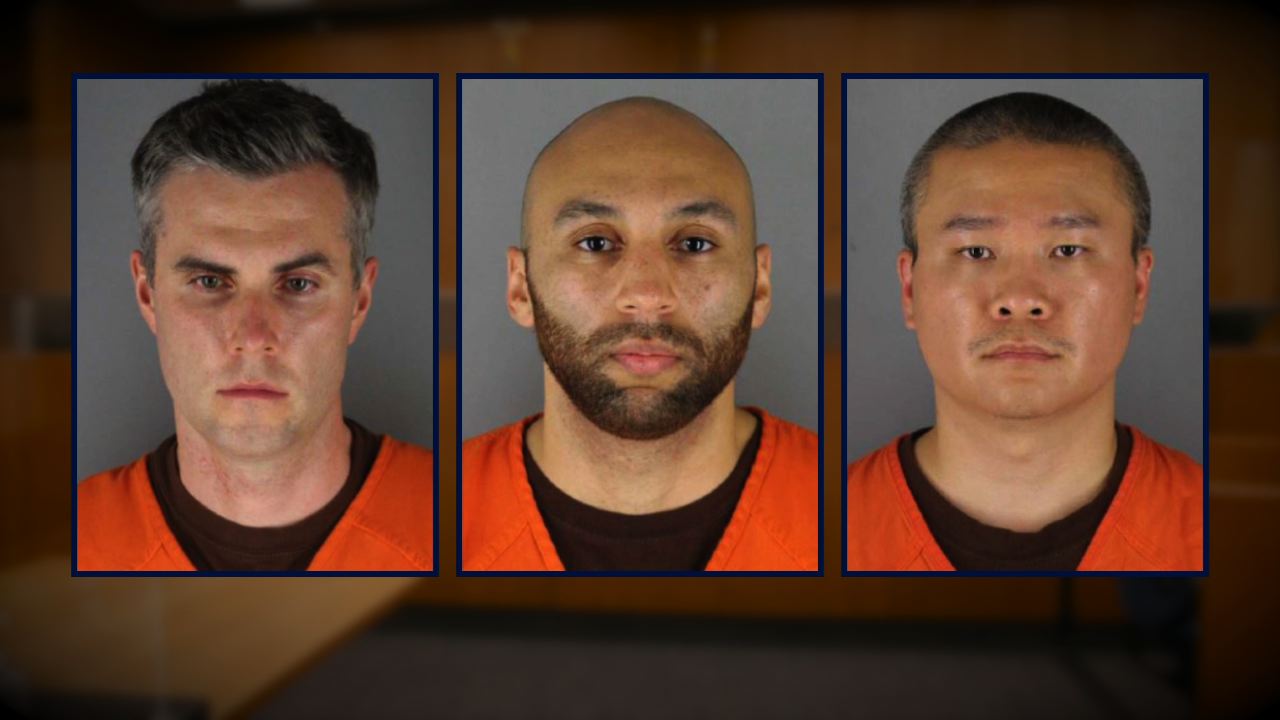What Chauvin’s sentence could mean for 3 others convicted of depriving George Floyd’s rights
[anvplayer video=”5120750″ station=”998122″]
At the federal courthouse in downtown St. Paul, Derek Chauvin was sentenced Thursday to 21 years in prison with credit for time served.
Chauvin signed a plea agreement in December in which he accepted responsibility for depriving George Floyd of his civil right to be free from an unreasonable seizure on May 25, 2022.
The former Minneapolis Police officer did not apologize during his remarks in court.
“I think it’s significant Derek Chauvin chose not to apologize, and it’s particularly significant in the context of a guilty plea,” said Rachel Moran, an associate professor at the University of St. Thomas School of Law. “When you’ve already pled guilty, you’ve already admitted to the offense, so you don’t have a lot left to worry about legally. That typically is your time — if you’re going to apologize, that’s your chance to do it.”
By signing the agreement, Chauvin also admitted to depriving John Pope of his civil rights in 2017. According to the document, Chauvin struck then-14-year-old Pope in the head with a flashlight and also knelt on his neck while he was lying handcuffed in the prone position.

From left: Thomas Lane, J. Alexander Kueng and Tou Thao. (Hennepin County Sheriff's Office)
Judge Paul Magnuson said Chauvin’s conduct was “wrong and offensive” in both cases. He also said, “I really don’t know why you did what you did … but to put your knee on another person’s neck until they expire is simply wrong, and for that conduct, you must be substantially punished.”
Chauvin’s sentence will run concurrently with his 22½-year state sentence. In April 2021, he was convicted of murdering Floyd.
“He’ll be serving the two sentences effectively at the same time,” said Moran, who explained the federal sentence will still add to the time he spends in prison. “Derek Chauvin was sentenced to 22½ years in state prison, but in Minnesota, you only serve two-thirds of that time in prison. The rest is on supervised release. In federal court, he just got a 21-year sentence but you serve 85% of that time in prison.”
Judge Magnuson referenced Thomas Lane, Tou Thao and J. Alexander Kueng during his remarks. A jury convicted the three former Minneapolis police officers of violating Floyd’s civil rights earlier this year.
Magnuson said to Chauvin, “You absolutely destroyed the lives of three other young officers by taking charge at this scene.”
Moran expects that comment will stand out to the other ex-officers’ defense attorneys.
“They’re trying to figure out what that sentence meant, and they are latching onto it,” she said. “It could mean that Judge Magnuson is holding Derek Chauvin almost entirely at fault and doesn’t feel the other officers are nearly as culpable. It also could mean he knows their lives will be ruined because they’ll be spending significant time in prison so it’s really hard to speculate what the judge meant by that. It was an interesting comment.”
The U.S. Attorney’s Office is recommending a sentence of about five to six and a half years in prison for Lane, who was convicted of the one charge he faced. For Thao and Kueng, prosecutors are seeking a federal sentence that’s “significantly higher” than Lane’s but lower than Chauvin’s sentence.
“The judge hasn’t set a sentencing date so we really don’t know [when it will happen],” said Moran. “It might seem like it’s dragging on — and I agree — but federal sentencing does tend to be quite slow, so it’s actually not abnormal.”